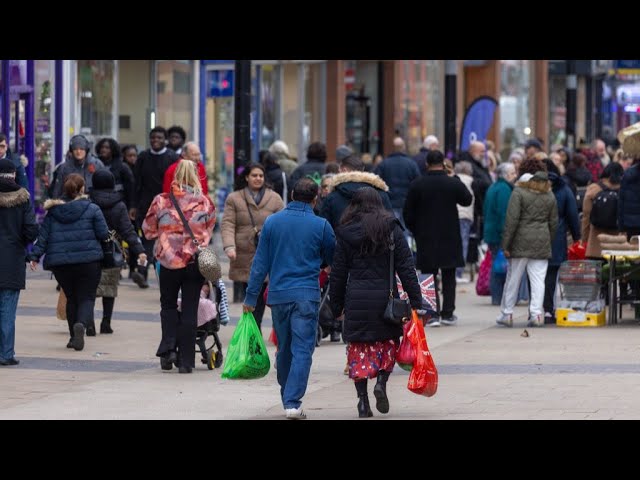Unexpected GDP rise in Q1 reflects service sector gains, yet forecasters predict slow growth for 2024
The UK has officially exited its recession, with the latest figures showing that GDP increased by 0.6% in the first quarter of 2024. The Office for National Statistics revealed that this rise marked a return to economic growth following a mild downturn in the second half of 2023. Economists had predicted a more modest growth of 0.4% in the first quarter, but the UK’s economy has proven more resilient than anticipated.
Growth was largely attributed to a surge in the services sector. Since the beginning of the year, increased wages and easing inflationary pressures have stimulated consumer spending, which has helped this crucial sector expand and offset some of the damage caused by high interest rates and inflation in 2023.
However, experts anticipate that growth will continue at a sluggish pace throughout 2024. This outlook stems from persistent challenges like high interest rates and the lingering impacts of last year’s inflation surge, which have eroded disposable incomes. The Bank of England projects that overall GDP will expand by only 0.5% this year due to insufficient economic momentum. The central bank left interest rates unchanged at 5.25% this Thursday but hinted at possible rate cuts beginning in June.
Despite these challenges, Chancellor Jeremy Hunt emphasized the positive aspects of this growth data. He noted, “There is no doubt it has been a difficult few years, but today’s growth figures are proof that the economy is returning to full health for the first time since the pandemic.”
He also pointed to a brighter economic forecast compared to other European G7 countries. “We’re growing this year and have the best outlook among European G7 countries over the next six years, with wages growing faster than inflation, energy prices falling, and tax cuts worth £900 to the average worker hitting bank accounts.”
Analysis:
The UK’s emergence from recession has significant implications across various sectors and interest groups. Politically, the government will seek to leverage this rebound to boost public confidence in its economic stewardship. The stronger-than-expected growth, driven by robust consumer spending in the services sector, might temporarily alleviate public criticism regarding inflation and high interest rates. The Conservative government, however, faces continued scrutiny from opposition parties over rising living costs and growing socioeconomic disparities.
Economically, slow growth remains a concern despite the services sector’s rebound. The Bank of England’s projection of a mere 0.5% growth in 2024 reflects significant challenges, including high household debt and squeezed disposable incomes, leaving little room for complacency. Additionally, while wage growth outpacing inflation is promising, economic uncertainty might reduce consumer confidence and curtail discretionary spending.
From a sociological perspective, this mild recovery benefits wealthier households, which tend to be less affected by inflation due to their ability to save and invest. On the contrary, low-income groups, minority communities, and other marginalized populations remain disproportionately affected by high living costs, which exacerbate existing inequalities.
Analyzing this recovery through a regional lens reveals disparities between different parts of the UK. While services thrive in metropolitan regions like London, growth might not extend to more rural and economically disadvantaged areas where local economies rely heavily on manufacturing or agriculture.
Moreover, the macroeconomic scenario remains vulnerable to international uncertainties. Ongoing geopolitical tensions, trade disruptions, and global inflation could affect energy prices and supply chains, impacting the UK’s growth prospects.
In summary, while the latest GDP data signals a positive shift in economic activity, the outlook remains mixed as challenges persist. The government will need to balance economic optimism with realistic policies that address disparities and bolster confidence across the broader economy.
